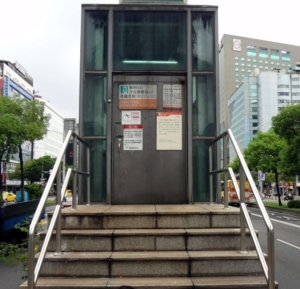As tensions escalate across the Taiwan Strait, Taiwanese society is undergoing concrete changes to prepare for a potential conflict with China.
The government is rapidly expanding measures to strengthen national defense and civil safety, while citizens are becoming increasingly aware of the need for self-defense.
With the introduction of shelter-locating apps, an extended conscription system, and the growing popularity of private military training, Taiwan is taking comprehensive steps—across all sectors—to prepare for a possible war.
Shelters and Extended Conscription

Image: Taiwan society in transition
To ensure rapid evacuation in the event of an attack, the Taiwanese government has launched a smartphone app that helps users locate the nearest bomb shelter in real time using GPS. These shelters include repurposed subway stations and underground facilities within public buildings.
Taiwan’s 2021 National Defense Report emphasized the growing threat of China’s “gray-zone” tactics—such as cyberattacks and cognitive warfare. As a response, the government is also promoting digital literacy and public awareness. The shelter app reflects a growing public mindset: preparing for war is no longer hypothetical, but a practical part of daily life.
In 2024, the government expanded its shelter infrastructure, designating 500 new sites in Taipei City alone.
The conscription system has also undergone a major transformation. Taiwan originally adopted conscription in 1951 but transitioned to a volunteer military by the end of 2018. However, rising Chinese military pressure prompted President Tsai Ing-wen to reinstate mandatory one-year service starting in January 2024.
The new conscription program includes realistic field exercises and advanced equipment training, going far beyond the previous four-month boot camp model. Seven new infantry brigades composed of conscripts were also formed as of 2024.
While some young conscripts have voiced frustration on social media over the program’s intensity, many also express a willingness to fulfill their duty to defend their homeland.
Civilians Learning to Use Guns

Image: Civilian shelter in Taiwan / Solomon203
On the civilian front, preparations for conflict are expanding rapidly.
Private military companies have begun offering tactical training programs, giving everyday citizens the opportunity to learn firearm use, basic strategy, and guerrilla warfare techniques.
By 2024, training programs have even expanded to include women and the elderly, with lighter equipment and tailored curricula. On social platforms like X, the growing interest in self-defense has sparked discussion of a potential “total defense” movement.
Taiwan’s All-Out Defense Mobilization Agency, established in 2021, is reinforcing a civilian mobilization network aimed at improving national readiness and responsiveness. Private businesses are also updating disaster protocols and stockpiling supplies such as food and medical equipment.
These efforts reflect a sobering realization: the threat of a Chinese military invasion is no longer abstract. It is real—and present.
With Lai Ching-te elected president in 2024, continuing the policies of Tsai Ing-wen, Beijing has intensified its military drills and hardened its rhetoric that “Taiwan is part of China.”
Taiwan’s sweeping defense preparations are a direct response to that pressure. The unity between government and civilians signals that this momentum is only accelerating.
Taiwan’s civil solidarity stands as a testament to its resilience. But preserving peace will require strong and sustained support from the international community.


